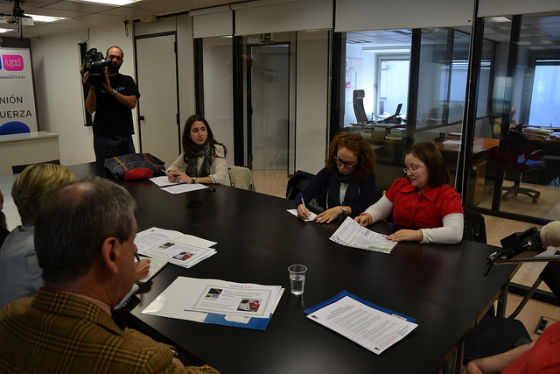News from the OpeningParliament.org community:
In Germany, the Open Knowledge Festival took place in Berlin from July 15-17. A good summary of the event can be viewed here. Members of the OpeningParliament.org community that attended include Foundation ePaństwo, DATA Uruguay, Sunlight Foundation, Fundar, Fundación Ciudadano Inteligente, KohoVolit, K-Monitor, Holder de Ord, Hvem Stemmer Hvad, Open Ministry, Open Knowledge Foundation Germany, Open State Foundation, Open North, OpenKratio, Hasadna, mySociety, and Access Info.
Elsewhere, Parliament Watch recently announced an online survey that documents the positions of Germany’s 96 MEPs on important policy issues. In addition to the survey, the organization also collected voting behavior of the elected officials during the last parliamentary term.
In Greece, the Ministry of Administrative Reform and E-Government submitted the country’s Action Plan to the Open Government Partnership (OGP). The plan contains ambitious commitments on parliamentary openness and legislative transparency, including the introduction of a system for tracking bill changes, improvements in the usability and functionality of the parliament’s website, provision of historical parliamentary documents, and enhancements of social media policy.
In Ireland, the government launched data.gov.ie, an open data portal that currently supports 419 datasets. The Minister of Public Education and Reform announced the end of application fees for FOI requests. And the government approved the country’s Action Plan for OGP which includes several components to increase citizen participation during the pre-legislative process through consultation with committees and scrutiny of draft bills.
In France, Regards Citoyens initiated a crowdsourcing project that converted declarations of interests for all 925 MPs into open data. The declarations were previously scanned into PDFs by the High Authority on Transparency in Public Life (HATVP). The conversion of these files to open data brings the declarations into line with standards established in October 2013 by France’s law on the transparency of public life.
In Italy, OpenPolis and others have been drawing attention to the country’s need for an FOI law with the #FOIA4Italy campaign. Despite the growing momentum around FOI in recent years, there has been a lack of progress on the issue in parliament. FOIA4Italy plans to submit an FOIA bill based on legislation in countries with advanced access to information laws after crowdsourcing improvements from the Italian public.
In Tunisia, Al Bawsala unveiled a new project, Marsad Baladia, a platform that will monitor the activities of municipalities to generate greater citizen awareness before municipal elections scheduled for 2015. The project has already created a transparency index from the 24 municipalities it has so far observed.
